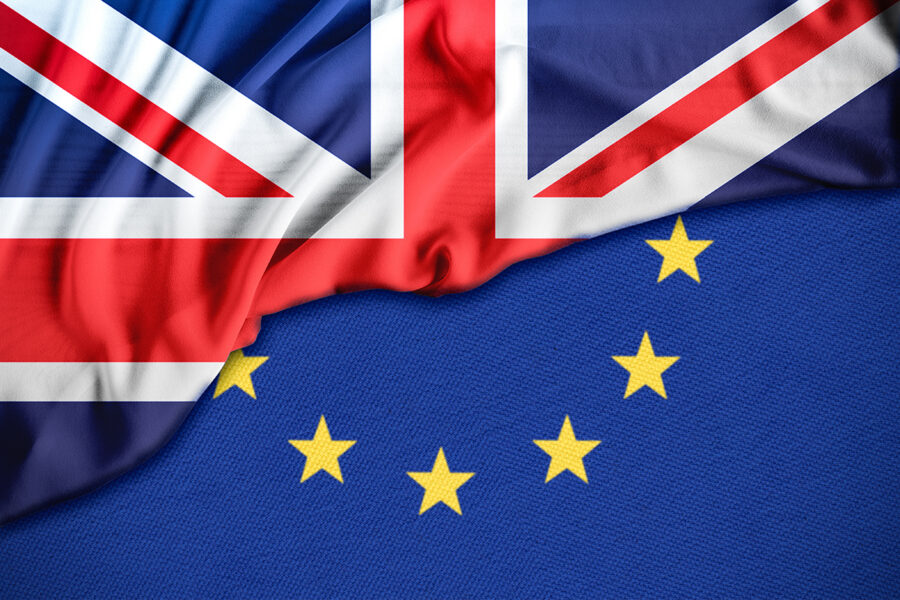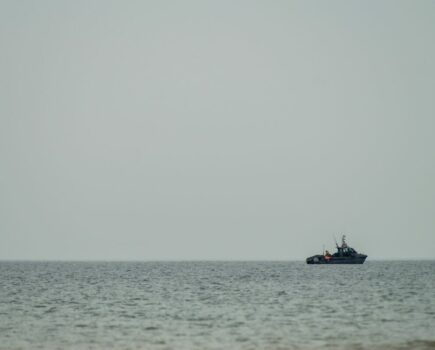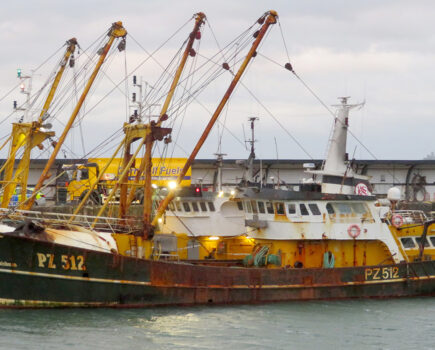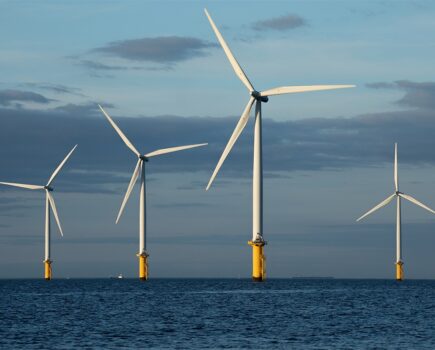UK and EU agree 11th hour Brexit deal – but battle to get it through parliament
The UK is set to leave the EU next week, after a Brexit deal was agreed and signed off at an EU summit last week, reports Tim Oliver
But as Fishing News went to press, there were still doubts as to whether it could get through parliament during a special session of the Commons last Saturday – the first time MPs have sat on a Saturday since the Falklands War in 1982.
Problems remain over the measures agreed to prevent a hard border in Ireland and maintain the Good Friday peace accord. The Northern Irish DUP, whose votes will be important in getting the deal through parliament, said it could not support the deal.
If the deal does not get through, the prime minister will legally have to ask the EU for more time, but European Commission president Jean-Claude Junker has said there cannot be any further extension.
The SFF welcomed the agreement, and said that it provides ‘the gateway to the UK’s exit from the CFP and the UK becoming an independent coastal state’. But the federation warned that the implementation period must not extend beyond the end of 2020, and that there must be no concessions on access to UK waters for EU vessels.
Elspeth Macdonald, the SFF chief executive, said last Friday: “More than three years after the referendum, we hope that Saturday marks the turning point when we can move to the next stage – working towards the sea of opportunity that exists outside of the EU’s CFP, and being able to redress the imbalance where 60% of fish caught in UK waters are not caught by the UK fleet.
“Reaching agreement on the terms of the UK’s withdrawal from the EU represents the end of this phase, but there is much still to do to secure the opportunities that exist for the Scottish fishing industry.
“It is imperative that the implementation period does not extend beyond the end of 2020, and that negotiations on the future free trade agreement between the UK and EU do not make any concessions on access to UK waters. We have made these points at every opportunity to government, and will continue to hold the government to account on the commitments made to the fishing industry in Scotland.”
Critics of the deal say it is little different from the one that Theresa May tried and failed to get through parliament three times. But the government was hoping that ‘Brexit fatigue’ and pressure to prevent any more delays would persuade enough MPs to vote for the deal to get it through.
Many fishermen reject the principle of a deal, because they would be locked into the CFP at least until the end of 2020, where nothing would change and the EU could impose measures that would further weaken the UK industry. They want a no-deal Brexit that would give the UK immediate control of its waters and freedom from the CFP.
South East England MEP June Mummery, a leading figure in the east coast of England industry, said that the agreement was simply Theresa May’s ‘ugly deal, and that will be BRINO – Brexit in name only’.
She said it was three and a half years since we heard we were on our way out of the ‘dreaded’ CFP, and nothing had happened.
“We’re nearly there, we’re that close, and our PM could – could – go over there and do a deal to keep us in.”
She asked two local fishermen in a podcast if they thought the UK fishing industry, especially the small-scale fishermen, would survive another three years of the CFP.
One said: “What have we got now? Walk up and down the coast and look at these inshore communities – offshore in some cases – Lowestoft, Hull – there’s nothing left.
“The small amount of people you’ve got left are on tenterhooks. To have another three years of continuity, of what we’ve got now, is destructive.”
The other fisherman said that the industry was in ‘a state of limbo’, which will carry on if the deal is agreed. “No matter what comes back, the EU are going to be seen to punish us, and we’re feeling the effects of that. Another three or four more years of that is going to devastate what’s left, which is just crumbs.”
June Mummery said she had made a recent tour of east coast fishing communities from Ramsgate to Grimsby, and had seen how the struggles of the industry had had ‘a domino effect on businesses in fishing towns and villages’.
She told Express.co.uk: “It is killing them. I’ve met people who are struggling to put food on the table for their families.” She added that a ‘clean break Brexit’ was the only way to ensure that Britain can take back control of its waters.
Brexit ‘catastrophic’ for Scots processors and shellfishermen
However, there are warnings from Scotland that any Brexit – deal or no-deal – could have a ‘catastrophic’ impact on Scottish processors and shellfishermen who export their catches to Europe. There are also fears of ‘disorder’ at sea.
Andrew Charles, co-chair of the Scottish Seafood Association, said that the sector would face a £34m bill each year to sell its catch to Europe after 31 October.
Speaking at a fringe event at the SNP annual conference in Aberdeen, he said: “Brexit is going to bring massive, massive headaches,” reported the Herald.
“As we stand at the present moment, to export fish, whether there is a deal or no deal, it is going to cost a fish exporter £160 per customer transaction. To put that in perspective, that’s going to cost the Scottish fish exporters £34m a year.”
He said the association had asked both the Scottish and UK governments to pay for the necessary certificates to help keep businesses going.
“Five separate certificates all have to be done on 31 October. For a small exporter that is possibly trying to sell 30kg of top-quality langoustines to a restaurant in Paris, switch the lights off – that restaurant owner is going to go and buy his lovely langoustines somewhere else.
“And unless the government does something about this – and we have only got a matter of days – there is going to be a catastrophic decline in the number of small exporters processing out of Scotland.”
In a debate in the Scottish parliament on preparations for a no-deal Brexit, deputy first minister John Swinney was told that the shellfish sector accounts for approximately 90% of the total value of landings in the Western Isles, and that shellfish exporters face ‘challenging circumstances’ in delivering to their primary export markets in France and Spain and ensuring that the shellfish stay alive on the way. He was asked if there were any contingency plans in place for the shellfish sector.
He said that it had been a priority to try to secure for the shellfish and fisheries sector ‘much greater clarity and assurance about the ability to get product to market as timeously as possible’, and the sector would be kept informed.
Marine Scotland is also ‘preparing for the possibility of disorder at sea that goes beyond fisheries offences, which might seriously threaten the safety of marine users’.
Sturgeon rejects deal
Scotland’s first minister Nicola Sturgeon said that the SNP would not vote for the deal.
She said in a statement: “While there remains uncertainty over whether this proposed deal will pass, what is absolutely clear is that it would take Scotland out of the European Union, out of the single market and out of the customs union, against the overwhelming democratic will of the people of Scotland.
“Scotland did not vote for Brexit in any form, and SNP MPs will not vote for Brexit in any form – especially when it is clear that Scotland, alone of the nations of the UK, is being treated unfairly.”
She said that Scotland was facing an outcome it did not vote for, and continued: “In the circumstances which now prevail, it is clearer than ever that the best future for Scotland is one as an equal, independent European nation. That is a choice I am determined to ensure is given to the people of Scotland.”
NUTFA calls for quota rethink
The New Under Ten Fishermen’s Association (NUTFA) has called for a fundamental reallocation of quota after Brexit on environmental, social and economic grounds, reports Tim Oliver.
The association slams the current FQA system and quota trading, which it says concentrates quota ownership in the hands of a few and steadily turns quota into an investment opportunity, rather than a system to protect a public resource.
It highlights the imbalance of the current shares of quota between ‘haves’ (FQA holders) and ‘have nots’ (under-10m/non-sector), saying that only 2% of the UK quota is available to under-10s, despite them being 75% of the fleet numerically.
NUTFA also rejects the claim that FQAs have led to healthier stocks, producing data to demonstrate a steady decline in stocks and in numbers of boats and fishermen over a long period.
It argues that the current allocation system was not based on any socio-economic considerations or principles of equity, but was simply allowed to develop piecemeal and unplanned in response to situations as they arose.
NUTFA says that the current management regime has left the inshore fleet and many coastal communities ‘struggling to survive’.
The increase in the employment of foreign crews means that much of the returns from fishing are sent abroad, further reducing the economic viability of coastal communities.
All these factors mean that the potential benefits of access to a public resource are not coming back to the public as they should, in order to maintain the inshore sector and the coastal communities that rely on it.
NUTFA’s arguments are made in a paper it has submitted to DEFRA, in response to the department’s consultation on how any extra quota that the UK acquires after Brexit should be allocated.
Turn to pages 8-9 in this week’s Fishing News for more details.








